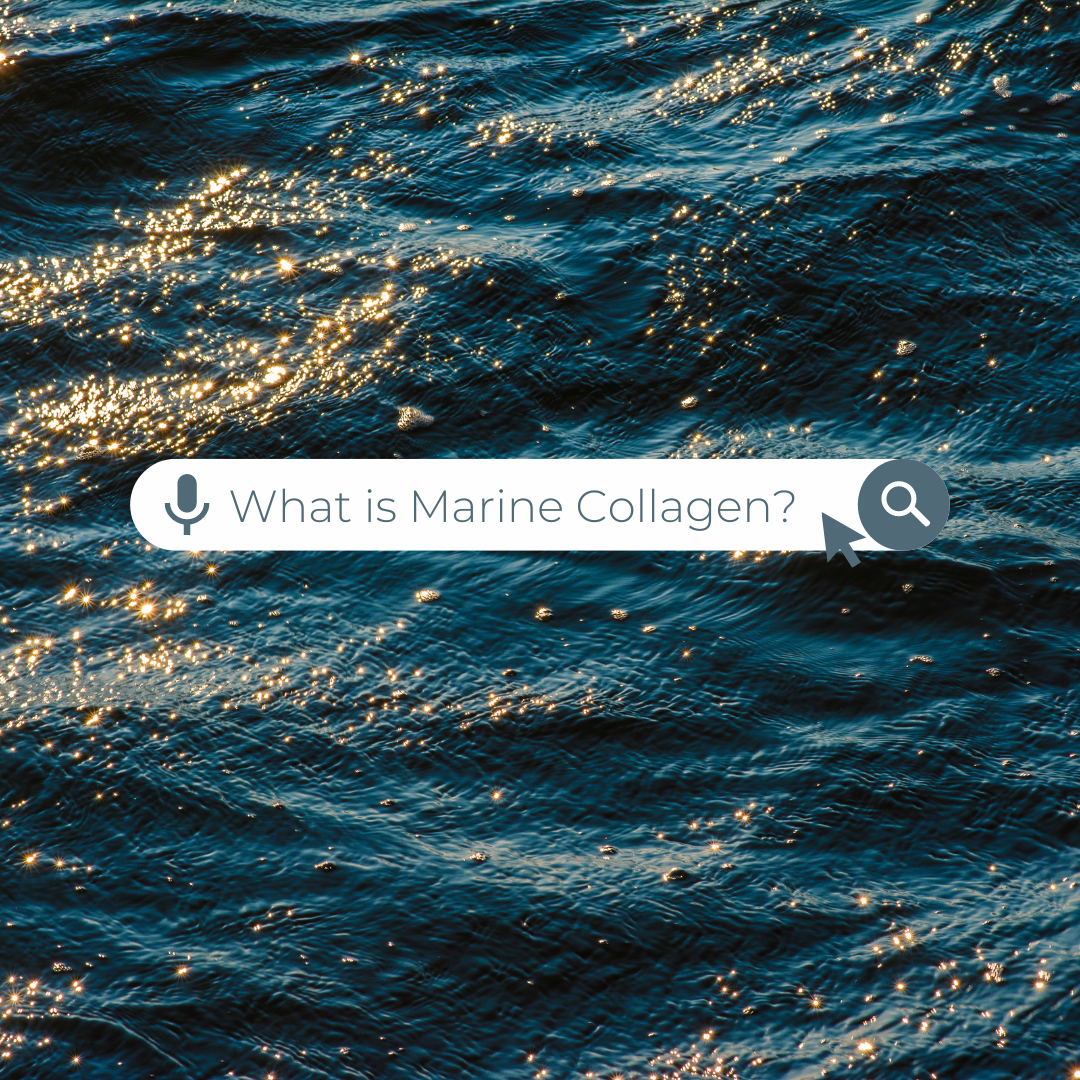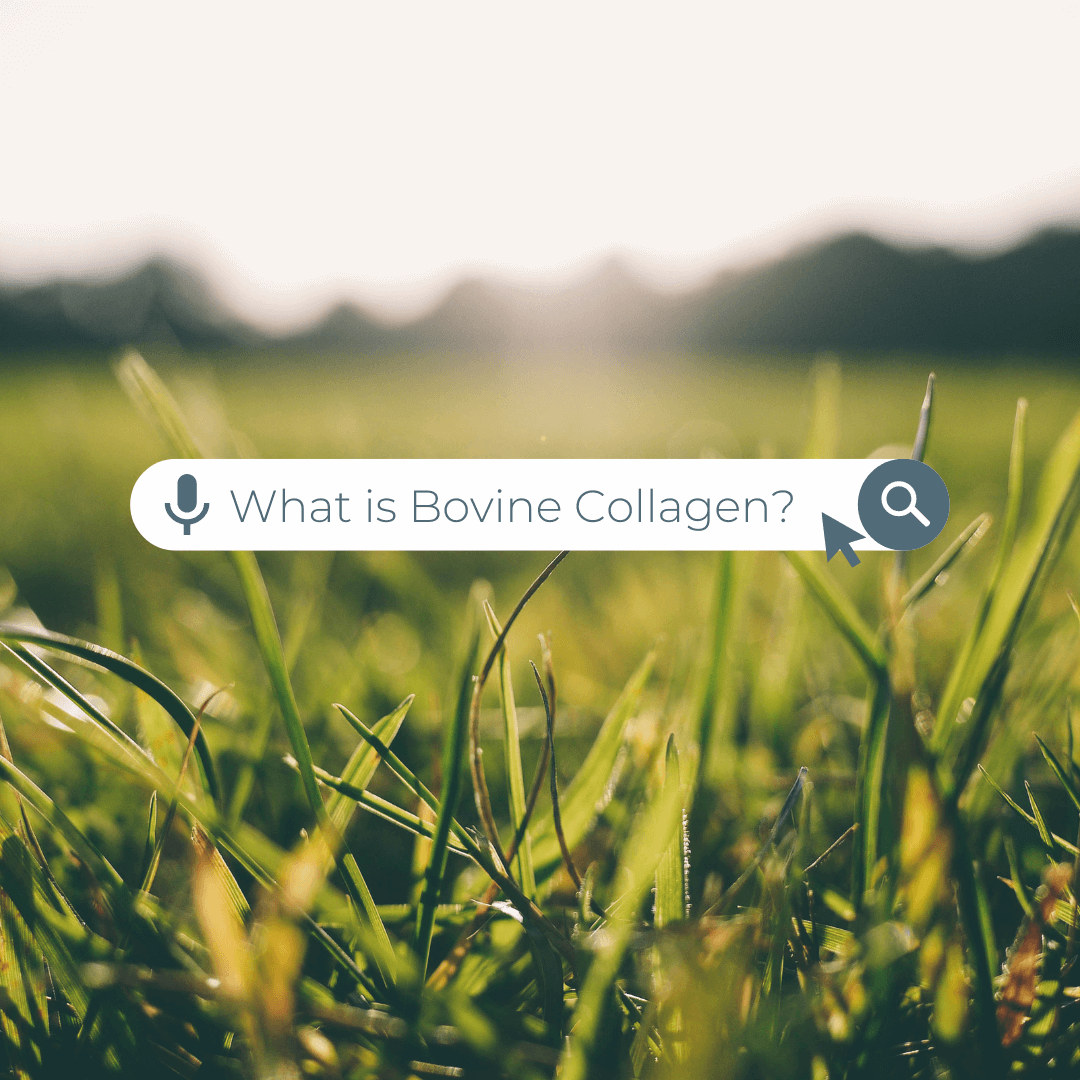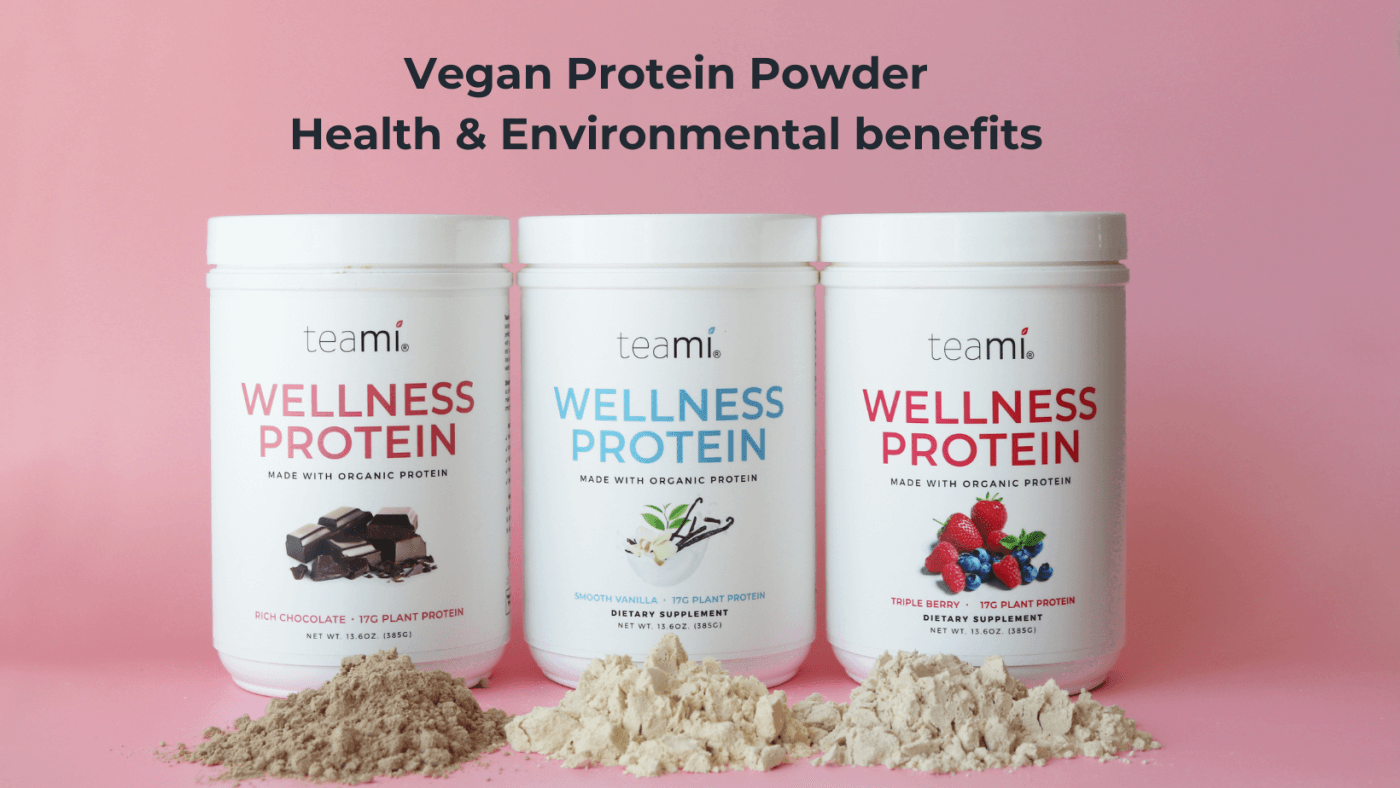Collagen's popularity has skyrocketed in recent years, experiencing a significant surge in interest. It's the MVP (Most Valuable Protein) in our body and has a lot of benefits on our overall well-being, from strengthening joints to promoting gut health. But it’s commonly known and loved for its beauty benefits - such as reducing fine lines & wrinkles, improving skin, strengthening nails, and boosting hair growth. No doubt on why it’s often referred to as the “Holy Grail” of the beauty industry.
The market primarily offers two prevalent sources: Marine Collagen and Bovine Collagen. While both serve as valuable sources, each presents unique benefits. Selecting the best one for you is all about aligning with your goals. And that's where we step in—to make that decision easier for you!
Collagen production starts declining around age 25. As this happens, you might start noticing wrinkles, thinning hair, joint pain and digestive issues like bloating. Other factors like smoking and too much sun exposure also slow down the body’s natural Collagen production. This is when collagen supplements become essential!
What is Marine Collagen?
As the name suggests, it is sourced from the skins, scales or bones of Fish or other Marine animals, which makes it a more ethical source option. By utilizing fish by-products that would otherwise go to waste, marine collagen production minimizes environmental impact and promotes sustainability in our oceans. It is perfect for people who are practicing Pescetarianism and want to remove red meat from their diet.
The molecules in this source are known to be smaller than those in bovine collagen. This size disparity is frequently mentioned as a potential reason why some individuals believe marine collagen might be absorbed more effectively by the body.
Benefits:
With that said, here is our top pick for those who want to experience all the benefits of Marine Collagen AND MORE!
مسحوق الكولاجین بخلاصة زھرة بازلاء الفراشة

168.75 AED
Create Super Beauty Smoothies with Collagen. Our Teami Beauty Butterfly Collagen is premium-select grade collagen, sourced exclusively from the scales of sustainable, wild-caught codfish. We blended two complementary antioxidant ingredients with our wild-caught marine collagen to make our powerful beauty collagen… read more
What is Bovine Collagen?
Bovine collagen is collagen obtained from cows. It's sourced from different parts like the skin, bones, or connective tissues of cattle. It is notably essential for promoting joint and bone health. It has Type I and Type III Collagen, crucial for sustaining the strength and resilience of joints and bones.
There have been growing concerns about the environmental repercussions and sustainability challenges linked to obtaining collagen from cows. These concerns mainly revolve around issues like deforestation, the emission of greenhouse gases, and animal welfare problems inherent in large-scale cattle farming. Consequently, some consumers are opting for collagen alternatives derived from marine or plant-based sources as a more eco-friendly and ethical choice.
Benefits:
Bovine collagen plays an important role in keeping our joints healthy by supporting the cushioning tissue called cartilage. This helps maintain flexibility and movement. Also, when you use bovine collagen supplements along with exercise or weightlifting, they might help your muscles grow, repair, and recover faster.
Collagen is packed with amino acids like glycine and glutamine, which are good for our gut. Taking bovine collagen supplements could help keep our gut lining strong, improve digestion, and even ease symptoms of conditions like leaky gut syndrome.
Similarities:
1. Versatile application - Collagen sourced from both bovine and marine origins has diverse applications extending beyond skincare and supplements. In the food industry, they serve as ingredients in various products like protein bars, beverages, and baked goods, aiming to augment collagen consumption and offer supplementary nutritional advantages.
2. Stimulation of Collagen production - It is believed that both bovine and marine collagen supplements have the potential to not just supply external collagen but also to encourage the body's natural collagen production. This dual effect is thought to support long-term enhancements in skin health, joint function, and overall well-being.
3. Accessibility - As interest in collagen supplements rises, both marine and bovine collagen products are becoming increasingly accessible. They're stocked in local stores, pharmacies, online retailers, and health-focused shops, making it convenient for people worldwide to obtain them.
4. Personalization - Marine and bovine collagen supplements are available in various forms such as powders, capsules, liquids, and creams. This variety allows individuals to select the format that aligns best with their lifestyle and preferences.
5. Absorption process in the body - After consumption, both bovine and marine collagen go through comparable digestion and absorption processes within the body. Specifically, their hydrolyzed forms break down into smaller peptides, enabling effective absorption and utilization by the body's tissues.
Differences:
1. Collagen types - Marine collagen primarily consists of type I collagen, sourced from fish scales, skin, or bones. In contrast, bovine collagen, derived from cattle, can contain types I, II, and III collagen. Each type serves distinct roles in the body, with type I supporting skin, bones, and tendons, type II benefiting cartilage health, and type III contributing to skin elasticity and blood vessel walls. This variation in collagen types offers diverse benefits compared to marine collagen alone, making bovine collagen supplements appealing for overall connective tissue support.
2. Environmental impact - Differences in environmental impact exist between sourcing marine collagen and bovine collagen. Marine collagen, sourced from fish, faces risks like overfishing and habitat damage. In contrast, bovine collagen, from cattle, can lead to issues such as deforestation and greenhouse gas emissions. Both processes consume resources like water and energy, but advancements in sustainable practices are being made. Choosing responsibly sourced collagen products can help minimize environmental harm.
3. Taste & odor - Marine collagen typically offers a milder taste and odor compared to bovine collagen, which may have a slightly beefy flavor and scent. This difference can affect consumer preferences in various applications, with some favoring the neutral taste of marine collagen, while others enjoy the subtle beefiness of bovine collagen.
4. Cultural preferences - In regions where specific cultural beliefs are prominent, such as areas where cows are revered, the decision between marine and bovine collagen can be guided by cultural inclinations.
5. Dietary preferences - For individuals adhering to pescatarian or seafood-centric diets, marine collagen often aligns well with their dietary preferences. Conversely, those following omnivorous diets or seeking alternatives to marine sources may lean towards bovine collagen, driven by factors like taste, texture, or ethical concerns.
Conclusion:
When you look at collagen choices, marine collagen is great for making your hair, skin, and nails better because it's easy for your body to use, especially if you like seafood. Plus, it's usually collected in a way that's good for the environment. On the other hand, bovine collagen is best if you want to help your joints and ligaments work better. Even though it might not be as easy for some people to absorb, it's still a good option for people with joint problems.
In short, if you care about your hair, skin, and nails, or you like seafood, go for marine collagen. But if you want to help your joints, bovine collagen is the way to go. Your choice depends on what you need for your health and what you like to eat.






